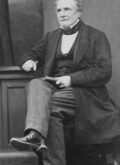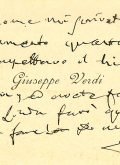scarce

BABBAGE — THE FATHER OF THE COMPUTER — COMPLAINS OF NOISE POLLUTION IN THE STREETS OF LONDON WHICH ROB HIM OF HIS TIME AND INTERUPT HIS WORK
BABBAGE, CHARLES. (1792-1871). British mathematician and inventor of the first computer. Scarce Autograph Letter Signed, “C. Babbage”. Two full pages, octavo. “1 Dorset Pl., Manchester Sq. W.”, March 26, 1868.

AMERICA’S FIRST MILLIONAIRE WRITES A CHECK
ASTOR, JOHN JACOB (1763–1848). First millionaire in the United States. Autograph Check Signed, “John Jacob Astor”. Oblong narrow octavo. [8” x 3” inches]. New York, December 30, 1816.

ALEXANDER GRAHAM BELL — HIS REMARKABLE ASSESSMENT OF THE FUTURE OF THE AIRPLANE:
“HOW TO PRODUCE FLYING MACHINES SO THAT ANYONE CAN FLY.”
“THE CLOSE OBSERVATION OF LITTLE THINGS IS THE SECRET OF SUCCESS IN BUSINESS, IN ART, IN SCIENCE, AND IN EVERY PERSUIT OF LIFE”
BELL, ALEXANDER GRAHAM (1847-1922) Scientist, inventor, and engineer who is credited with inventing the telephone. Partial Typed Letter Signed “Alexander Graham Bell.” One page, small quarto. No place. No date.

VERDI PENS A NOTE ON HIS NAME IMPRINTED CALLING CARD
VERDI, GIUSEPPE. (1813-1901) Italian composer. Attractive Autograph Note Signed, “G. Verdi”, in Italian, on his personal imprinted calling card.